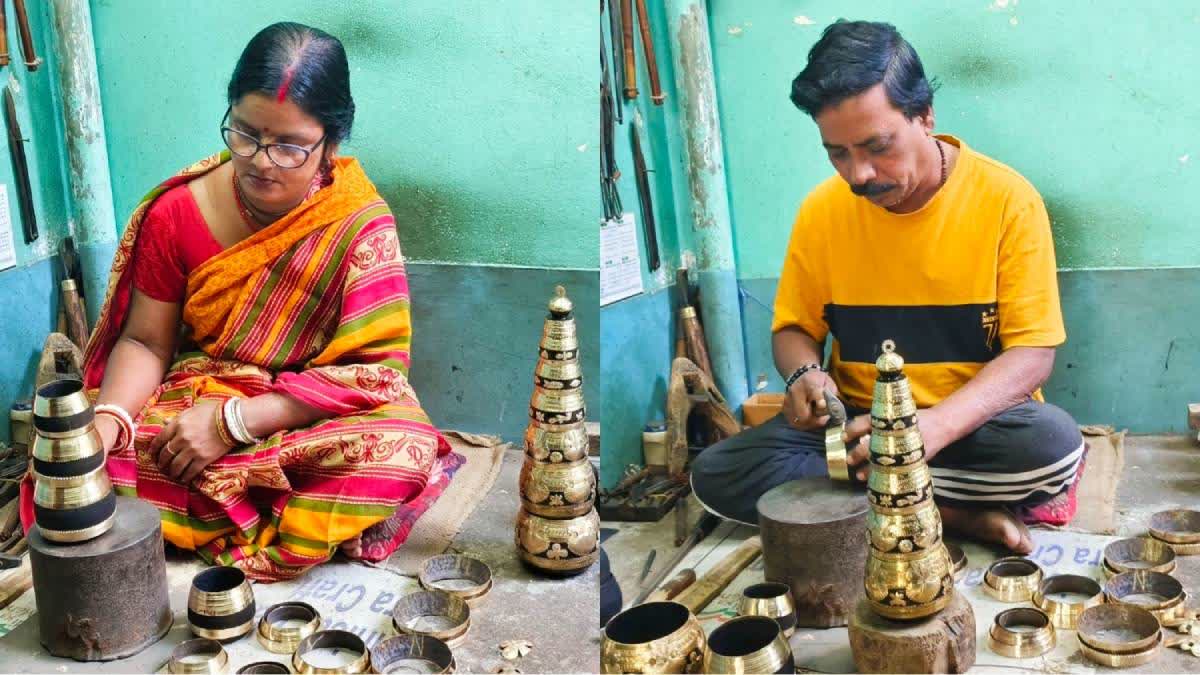Lokpur (Birbhum): The British-era Sher-Pai cottage industry, famous for 'Suri-Bowls,' is slowly fading into oblivion as the only ironsmith family in Lokpur village of Bengal's Birbhum struggles to keep the craft-making tradition afloat.
Some of the unique crafts this family churns out are Sher, Pai and Chattak —different weight measurement units of the bygone era. Mangowood and brass are mainly used in the production.
Bholanath Karmakar and Ruma Karmakar, who won the President's Award for their mastery, rue that this unique craft will soon be outdated without the government's recognition and support. They rue that nothing substantial has been done on the government's part except empty promises. While Bholanath received the Presidential recognition in 2014, Ruma was bestowed with the honour in 2017.
"I learnt the century-old art from my father-in-law. I went to many places with 'Sher Pai'. Earlier it was used as a weight. Now with the invention of digital scale, it remains just an art. But my worry is how this art will survive. Officials from the administration come, make promises, and leave. If the government does not cooperate, then this art will become obsolete. Only my family is making the art for which me and my wife received the President's Award," Bholanath said.
The Sher-Pai, also known as the Suri Bowl, is a traditional vessel used for measuring grain. The name "Sher-Pai" is derived from the word "Sher," which denotes a unit of weight, and "Pai," meaning a quarter unit. Various regions across India use similar measuring devices made from materials such as wood, metal, cane, and fruit shells, each with different names like Kunke, Poila, Para, and Padi.
Earlier, these units were used for measuring paddy, wheat, rice, milk and other household stuff where one pai denoted 466 grams while two pais make one sher or 933 grams. This unique artwork is made by placing the units in a continuum.
